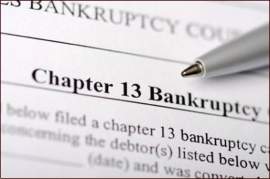
All You Need to Know About Bankruptcy Credit

Related Forms
Schedule B - Personal Property
Schedule C - Property Claimed as Exempt
Schedule D - Creditors Holding Secured Claims
Schedule E - Creditors Holding Unsecured Priority Claims
Schedule F - Creditors Holding Unsecured Nonpriority Claims
Schedule G - Executory Contracts and Unexpired Leases
Schedule I - Current Income of Individual Debtor(s)
Schedule J- Current Expenditures of Individual Debtor(s)
Summary of Schedules (Includes Statistical Summary of Certain Liabilities)
View AllThe concept of credit is fundamental to the economy. In many cases, individuals need or want to purchase items that they do not have the finances to readily afford. Credit provides consumers with the ability to purchase goods or services, and to pay for these assets later. An individual will be granted a loan or a line of credit, and he/she will be required to repay any debt that is accrued.
In order to obtain large loans for the purchase of expensive items, such as a home or a car, an individual must establish and maintain a decent credit history. Generally, a consumer will not be granted a home mortgage or a car loan if he/she has displayed financial irresponsibility. Credit is important for various different reasons, and a poor credit score may thus have adverse effects on an individual's future.
When an individual needs or desires a line of credit, he/she will be required to submit an application to a creditor. In most cases, the lender will be a bank or a credit union. The creditor will review the application and run a credit check on the applicant. If the applicant's credit report exhibits a positive financial history, the creditor will most likely grant him/her a loan.
The lender will specify the conditions of the loan, including repayment obligations, interest rates, and the cost of the monthly payments. The debtor will be expected to adhere to these conditions as listed. Failure to comply with the terms of a loan agreement may result in adverse consequences for the borrower, including bankruptcy, foreclosure, and repossession. The debtor will be charged interest on any debt that is allowed to accumulate on the loan that is granted.
The specific conditions of a loan will vary a great deal based on the type of loan that is granted. However, some fundamental principles will remain constant across loan types. Over a specified period of time, a borrower will be required to repay his/her creditor for the initial amount of the loan, as well as interest payments, which are generally incorporated into monthly payments.
An individual may seek a line of credit for a variety of different reasons. Credit cards are generally granted by lenders so that consumers possess the ability to make necessary and recreational purchases, even if they are unable to afford these assets at the time of purchase. An individual will also need to obtain a loan from a creditor when he/she is attempting to buy a house or a new car, as these purchases are expensive, and in the majority of cases, a consumer will not have the financial funds necessary to purchase these items in full.
In order to obtain large loans, a consumer must first establish credit. This is often accomplished by successfully and responsibly utilizing smaller lines of credit, such as credit cards. If a consumer is unable to effectively handle credit card debt, it will be reflecteded on his/her credit report and he/she will likely have difficulty obtaining a large loan. In today's economy, it is often very difficult for an individual to survive without using credit.



















